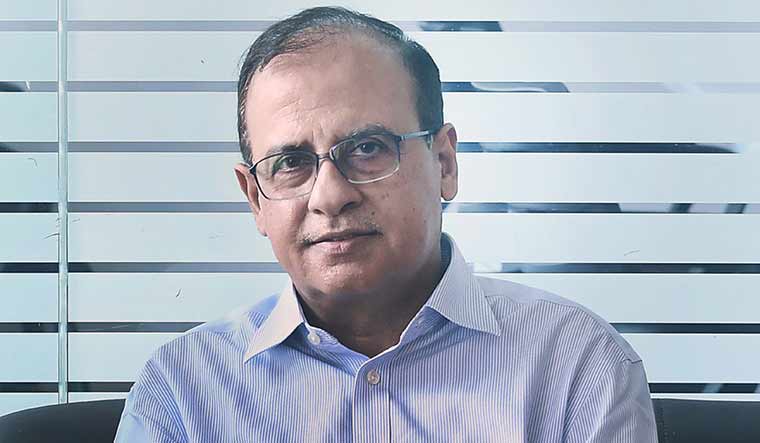AJOY MEHTA, a 1984-batch IAS officer was at the helm of the Covid-19 response in Maharashtra as the chief secretary. After his term ended on June 30, Chief Minister Uddhav Thackeray created a new post—principal adviser to the chief minister—to keep him on board. Mehta talks to THE WEEK about the state’s fight against Covid-19 and why private hospitals continue to overcharge patients. Edited excerpts:
What is your take on the Covid-19 situation in Maharashtra? There are over two lakh cases now.
In one line, we are very much in control. Yes, there are some hotspots where we are working to bring down the number of cases. But, in most places we have plateaued. I would not say it is coming down, because we are also opening up. As you open up, there is bound to be an increase. But the increase should be within the control of your health system. Today our health system is not swamped [as] our reopening is calibrated. We are building health infrastructure, too.
Has Maharashtra entered the community transmission phase?
No. We are far from it. When community transmission starts, you will see geometric progression; 6,000 will become 12,000 the next day and 12,000 will become 24,000. Also, in community transmission, one is not able to trace the index cases. But today, we are able to trace the index cases and that, too, in containment zones and hotspots.
The opposition has alleged that the government is underreporting deaths.
Covid-19 deaths must be notified under the Epidemic Act, which was not done in the rush of things when we started. Our people were involved in saving lives and that did not get reported. So, all figures were reconciled over the state. Yes, the death rate went up, but at least we have told the people the truth.
The state’s fatality rate is very high in comparison with the national rate.
The rate is high because we are undeniably the most urbanised state and Mumbai has the highest level of urbanisation. And unfortunately this disease has been an urban phenomena. Social distancing in public transport is not possible today. The trains in Mumbai carry 6,000 passengers. Our offices, shops, sabzi mandis... we have just not thought about social distancing. It is a new concept and it will take time to put all these things in place. Our work ethics, social ethics and a lot of things will have to change.
Is the state nearing a second peak?
Monsoon tends to lower your immunity and brings along certain diseases, including dengue and malaria. So we are now making huge efforts to keep monsoon-related illnesses in control. Because a combination of these with Covid-19 will become deadly.
There have been instances of overcharging in private hospitals.
This situation existed about a month back; we were fighting it. Today, 80 per cent beds have been taken over. We have also got auditors now in each hospital , looking at their billing section. We also have a complaints mechanism in place and as a result we filed an FIR against the CEO of a very renowned hospital in Mumbai for overcharging patients. This is the first of its kind in the country. We have conveyed very strongly that we need everybody’s support during this crisis. And if you support us voluntarily it is fine, else we have the backing of the law.
The 80:20 bed ratio was confusing and many hospitals came out with their own versions of it.
At the start, we converted government hospitals across the state into Covid-19 hospitals. Then we made the Mahatma Jyotiba Phule insurance applicable to everybody—12 crore people. Thousands of private hospitals and 900 procedures came under that umbrella. But, hospitals were not ready to treat patients at insurance rates. That is when we asked for 80 per cent of their beds for treatments covered under the insurance. While some hospitals offered 80 per cent of the 10 per cent charity beds, others showed some beds to be unoperational.
[We said] that we will send a person and count all the beds, and I want 80 per cent of the total beds available. So, to counter this, hospitals began overcharging with, for example, personal protective equipment costing 010,000 and other consumables. So then we fixed charges of PPE and said we could supply them to the hospitals, too, and asked them to display the rates on a board outside. So as hospitals came up with new things, we [stepped in].
For the full interview, log on to www.theweek.in


